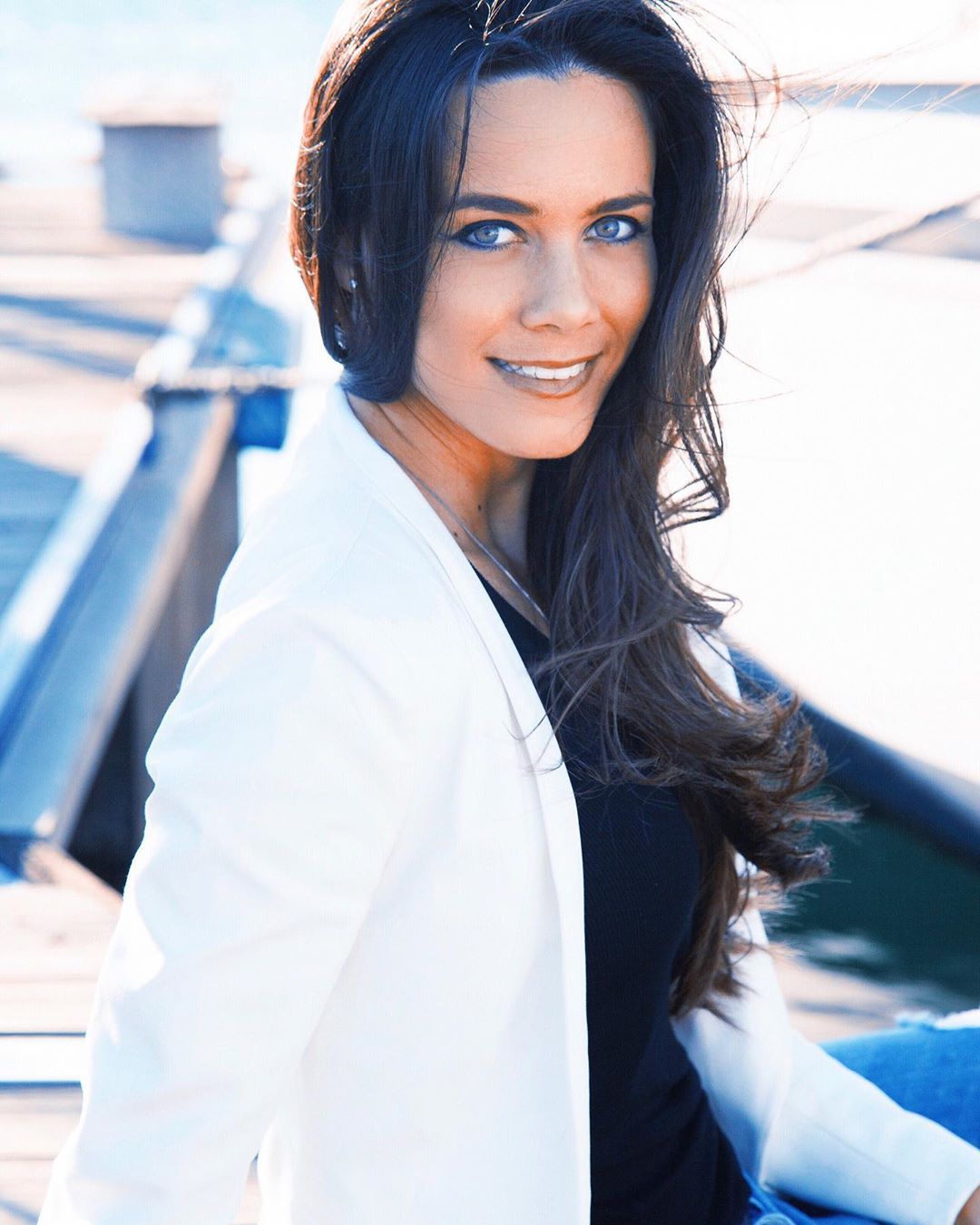Sandra, The Yacht Purser
The purser position is essential to the successful running of a superyacht. He or she manages everything from interior to accounts. We had the pleasure of interviewing Sandra The Yacht Purser to explore the role of a purser onboard a superyacht. Read on if you aspire to become one!

How long were you a Chief Stew before you became a Purser?
About 6 years.
Sandra what advice would you give to crew who want to pursue becoming a Yacht Purser?
The first step is to understand that pursers are usually only found on larger vessels. If somebody is wanting to move into the role as a purser, they need to really have large yacht experience. The reason I say this is because the purser is a very diverse role. You have things that you are responsible for that nobody else knows about except the captain. Also, you are supporting the other departments. If you have never worked on a large yacht, it is very difficult to support these departments because you don't understand what they do or how they fit together. Logistics become a lot more difficult on larger yachts in terms of provisioning, crew rotations, managing spare parts to and from the vessel for the engineers, and admin for the boat. It can become quite challenging unless you have large-yacht experience.
When did you decide to go from a Chief Stew to Purser?
I always wanted to be a purser, but I didn't have anybody who I could turn to and ask for advise. I started yachting in 2006. It took me quite a while to find a purser position even though it was in high demand. This was mainly because I was often stuck on smaller boats that didn't need the purser position. Even though I had a financial background (I studied at University Finance and Law), crew agents didn't understand how university-based education would be beneficial to the role of the purser. Having said that, when you are a purser, it's not just about the accounts. That's only one aspect of the work. There are a lot of other things you are responsible for that have very serious implications should you get them wrong.
I had a crew agent who knew that I wanted to be a purser, and I hounded her over and over again until a position finally became available. Through that one formation of a relationship with a crew agent, I was able to land my first purser role.
When did you decide to move from Purser to land?
I always had this in the back of my mind. I started my website for The Yacht Purser in 2017 while I was still working on yachts. I left the yachting industry in 2018. At the time, I was on rotation, and the idea of sharing a cabin and working at sea slowly became something I no longer wanted to do. It was always my exit plan to go land-based. At the end of 2017, I registered for Tony Robinsons life coaching course. By that point, I have been coaching and mentoring crew for a long time, and wanted to formalize that to eventually pursue as a profession. Now, I have my life coaching certification and my training course. The process took about 2 years.
What did you like and dislike the most about the role of a purser?
I like the great sense of responsibility. Even though it's sometimes a thankless role (people don't say thank you for doing the payroll, thank you for getting me back onto the vessel safely, etc.), I am not the type of person who needs praise like that. I think it's very rewarding when you do solve a problem, or you do manage to complete something well. I find that very rewarding. It is a very different role than a chief stew because guests look at you slightly differently. A chief stew is the head of department, and respected. But, at the end of the day, you're still cleaning that person's room. Guests respect a purser in a different way: as an expert of sorts. A purser gets to have a look at how the vessel operates. A purser can be a captain's right hand man/woman. A lot of the things a purser does would be done by a captain on a smaller vessel, so there is a lot of information to be on top of. It is important that a purser's education continues, because things within the industry are always changing.
Where was your favorite travel destination?
My favorite travel destination was Antarctica for an obvious reason: it's so difficult to get there. I was the purser onboard, and was involved in a lot of the logistics like flying guests and getting food to the vessel. It was very challenging, but the location was so beautiful and remote. It was a once in a lifetime opportunity. If you ever have the chance to do something once in a lifetime, you do it!
Where do you still want to go?
Bucket list travel would be Japan. I would love to go skiing here.
Sweden, I have never been there, even though I have been to over 60 countries!
What inspires you to work in this industry?
I really enjoy helping people. I enjoy contributing to my network and helping them with info and support.
I find the balance of power very skewed towards owners and management companies, and I do think the crew often don't have information regarding the rights they have onboard. It's also very difficult, as there is not one place to go to find what your rights are as a seafarer. It all depends on the size of the vessel, private or commercial, and location of travel. I do help a lot of crew pro bono who need the help. I have assisted with a few crew regarding wages by pointing them to the right direction on where to obtain good legal advice. I helped a pregnant chief stew who was fired onboard for being pregnant. I helped crew in Malta who had not been paid for 4 month. It a lot of hard work, but I would like to be someone who people can contact to have reassurance about their contracts.
What do you miss the most about working onboard yachts?
Probably the food, haha. I'm not a great cook! Having my laundry done all folded neatly is great. People not having to wear shoes inside is great. Although I have a no-shoe policy, it is sometimes difficult to enforce on land.
Tell me something you struggled with early in your career? How did you overcome this?
Not having a mentor or someone to look up to made it difficult for me to step into the role of a Chief Stew. I think I got the position sooner than what I was ready for, but it was either sink or swim.
I have developed over the years my own network and mentors. I am still in contact with a lot of captains and a lot of people who I used to work with. Asking for advice and asking for help are very important if you want to advance in this career.
I also really struggled with crew agents pushing me for jobs that I really didn't want. I have a few horror stories that I tell my students, and there is one specific crew agency that I would not work with again. I think that is part of the problem in yachting. Crew take jobs that they are not suitable for, and vessels do not have proper hiring procedures in place.
What was the most rewarding part about The Yacht Purser role?
When you're a purser, nobody knows you are doing your job well until things go wrong, so it's quite difficult. Knowing that you are orchestrating a lot of the things that happen in the background is rewarding.
I think what was really rewarding for me was the work itself. I took great pride in it because I studied the law, kept up to date on LMC, and knew my rights onboard. When things happened, like captains who asked me to do things that I refused based on the law, it was great having the management company back me up in agreement. It was also rewarding being able to support crew. Obviously, you keep the owner and the captain's best interest at heart, but it's important to know that it's a reputation risk to a vessel if you treat crew badly. For instance, if you say you are only going to pay them x amount of money instead of their full pay because of y and z, it impacts the ability of the vessel to get quality crew down the line. Crew talk, and they will tell others what happened on that boat.
Why should crew take The Purser Course?
The reason I created the course was because I found that people who had completed other courses still lacked the practical training and aspects of the day to day runnings of the vessel.
For example, payroll. Theoretically, they knew how to do payroll, but practically, they had never done it. I have created a whole story about a fake vessel, so by the time they finish the course (8weeks in length), it's almost like they have had a full rotation as a purser onboard.
Besides having access to me, they also complete the course as a group, so they are building a network to keep in touch with each other. I am very involved with my students before, during, and after the course, so I think a lot of training schools take students in and then spit them out. They don't have a person to message after the course to ask questions like "What do you think about this?", or "Do you have this document?". I developed a lot of my own standard operating procedures for purser roles. My students benefit from having access to these. I think the additional interaction is hugely beneficial.
Can anyone take this course?
Yes, I am also getting a lot of inquiries from chief officers and captains who want to do the course. Even though they get a lot of information in their COCs on the business and law, they still lack the practical aspect of it.
What else do you think crew should know?
A lot of people who want to progress as a purser don't understand what the role of a purser really does.
Even my chief stews who have had pursers onboard are like "wow" once they take the course. Being a purser is a very technical job, so that is something you need to know. I always tell my students that when they are working, the quality of their documents needs to be on point. If you had to set a table as a chief stew, you had to have all the knives and forks a certain way, or match the napkins. You want to make sure you think the same way when doing documents. Make sure you have all the same font and everything looks professional. It's all a part of business communication.
Looking for a yacht job? Create a free CREW account and start receiving job offers.
Looking for crew? Join Meridian and easily search over 40,000 qualified crew profiles to find your next great hire!



 Employer Registration
Employer Registration
 Crew Registration
Crew Registration




